K. Lloyd Billingsley • Wednesday, June 6, 2018 •
 California’s Fifth District Court of Appeal has now demanded that the state Agricultural Labor Relations Board reveal the results of a 2013 decertification election at Gerawan Farms, a major grower in the central valley. Those workers are not the same ones who signed a contract with the United Farm Workers in 1990. More than 20 years later, the union reappeared and demanded that the workers pay the UFW three percent of their wages and those who refused would be dismissed. The workers held protests outside ALRB offices and the agency finally agreed to let them vote to decertify the UFW. The union demanded that the ALRB not count the ballots, and the ALRB duly complied. The unelected board, composed entirely of government appointees, also imposed a contract on Gerawan, with no ability to opt out.
California’s Fifth District Court of Appeal has now demanded that the state Agricultural Labor Relations Board reveal the results of a 2013 decertification election at Gerawan Farms, a major grower in the central valley. Those workers are not the same ones who signed a contract with the United Farm Workers in 1990. More than 20 years later, the union reappeared and demanded that the workers pay the UFW three percent of their wages and those who refused would be dismissed. The workers held protests outside ALRB offices and the agency finally agreed to let them vote to decertify the UFW. The union demanded that the ALRB not count the ballots, and the ALRB duly complied. The unelected board, composed entirely of government appointees, also imposed a contract on Gerawan, with no ability to opt out.
The appeal court ruled that Gerawan had not indulged unfair labor practices. The court also demanded a tally of the 2013 vote, but the ALRB announced no plan to comply. The refusal to count the ballots, at the behest of an outside party, was a dereliction of duty. Since no board member was fired or replaced, the ALRB operates without accountability. That is unacceptable and legislators should dismiss the current board and do away with the board entirely. It servers no legitimate purpose and many independent organizations could count the ballots and oversee future elections at little or no cost to taxpayers. Meanwhile, heavy-handed tactics are not new for the UFW.
Supposedly saintly founder Cesar Chavez opposed the migrant workers he called “illegals” and “wets” and deployed goon squads to intimidate and beat up his rivals. Chavez and UFW co-founder Dolores Huerta organized an “Illegals Campaign,” that tracked immigrants in the fields and reported them to the federal government.
The greatly diminished UFW doesn’t represent all farmworkers and unions don’t represent all workers. According to the federal Bureau of Labor Statistics, only 15.5 percent of wage and salary workers in California are union members. A full 84.5 percent of California workers, the vast majority, are not union members. Unions are not the same as “labor” and better described as a special interest.
***
K. Lloyd Billingsley is a Policy Fellow at the Independent Institute and a columnist at The Daily Caller.
Vicki Alger • Tuesday, June 5, 2018 •
 “Teachers are standing up for their students and themselves against largely red states with weak labor laws,” writes American Federation of Teachers President Randi Weingarten in her recent USA Today editorial. “The days of passive resignation,” she says, “are over.”
“Teachers are standing up for their students and themselves against largely red states with weak labor laws,” writes American Federation of Teachers President Randi Weingarten in her recent USA Today editorial. “The days of passive resignation,” she says, “are over.”
Weingarten and others seem fond of characterizing the recent wave of teacher strikes as political re-awakenings. Yet preliminary findings from a pending survey suggest that teachers unions and their allies may regret their “Remember in November” mantra.
Commentators spanning the left-of-center spectrum have highlighted how union leaders were largely Johnny-and-Jane-come-latelies to teacher strikes in West Virginia, Oklahoma, Kentucky, Arizona, Colorado, and most recently North Carolina (see here, here, here, here, here, and here). This is a significant misstep at a time when unions are fighting for their collectivist lives.
This summer the U.S. Supreme Court is expected to rule in Janus v. AFSCME, a case brought against government unions for charging non-members agency fees. If unions are prohibited from charging these fees, the cost of members’ dues could soar—by hundreds of dollars annually in the case of California Teachers Association members (see here and here). The result? Less money and fewer members.
William Watkins • Monday, June 4, 2018 •
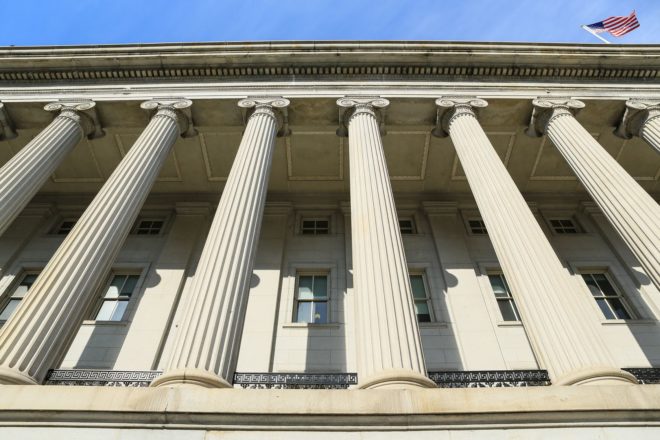 Today the U.S. Supreme Court decided Masterpiece Cakeshop v. Colorado Civil Rights Commission and overturned a decision finding that a baker illegally discriminated against a same-sex couple by refusing to bake a specialty cake for their wedding based on the baker’s orthodox Christian principles concerning marriage. The state Commission and lower courts found that the baker’s actions were contrary to the state’s public accommodation statute. The baker challenged the decision on grounds of free exercise of religion and free speech.
Today the U.S. Supreme Court decided Masterpiece Cakeshop v. Colorado Civil Rights Commission and overturned a decision finding that a baker illegally discriminated against a same-sex couple by refusing to bake a specialty cake for their wedding based on the baker’s orthodox Christian principles concerning marriage. The state Commission and lower courts found that the baker’s actions were contrary to the state’s public accommodation statute. The baker challenged the decision on grounds of free exercise of religion and free speech.
The Court punted on the free speech question, but decided that the Commission’s adjudication of this case violated “the State’s duty under the First Amendment not to base laws or regulations on hostility to religion or religious viewpoint.” The Court found hostility based on remarks from commissioners describing the baker’s religious beliefs about marriage as “one of the most despicable pieces of rhetoric that people can use to—to use their religion to hurt others.” The Court also noted that the commission compared the baker’s free exercise claim to grounds used to support the Holocaust and slavery. On top of this, the Court found that in other cases where bakers had refused to bake cakes containing Biblical statements condemning homosexuality, the Commission found no unlawful discrimination.
Craig Eyermann • Monday, June 4, 2018 •
 In an interview with CNN‘s Anderson Cooper on Thursday, May 31, 2018, Puerto Rico Governor Ricardo Rosselló said that there would be “hell to pay” if officials in the U.S. territory’s government were to suppress the reporting of statistics about the magnitude of the death toll stemming from the devastation of Hurricane Maria on the Caribbean island in September 2017:
In an interview with CNN‘s Anderson Cooper on Thursday, May 31, 2018, Puerto Rico Governor Ricardo Rosselló said that there would be “hell to pay” if officials in the U.S. territory’s government were to suppress the reporting of statistics about the magnitude of the death toll stemming from the devastation of Hurricane Maria on the Caribbean island in September 2017:
“If it’s true, Anderson, there will be hell to pay, because I really want this to be very transparent. I want the truth to come out. That’s the bottom line. And I want us to learn from this tragedy.”
The problem with that statement is the long track record that Governor Rosselló and Puerto Rico’s government officials from both his administration and from previous administrations have in seeking to undermine transparency in the reporting of accurate statistics that the territorial government produces, which have greatly contributed to Puerto Rico’s massive problems.
Sam Staley • Friday, June 1, 2018 •
The newest contribution to the Star Wars film universe, Solo: A Star Wars Story, has a lot to offer libertarians, lovers of underdogs, and modern-day pirate enthusiasts. Director Ron Howard’s craftsmanship has created a well-executed action movie that entertains even if it doesn’t bedazzle audiences with special effects, a plethora of really quirky characters, or mind-bending plot twists. Howard (A Beautiful Mind, The Da Vinci Code, Frost/Nixon) delivers a solid movie that provides some of the backstory for a popular character leading up to Star Wars: Episode IV: A New Hope even if it does fall short of a true origin story.
The movie starts with a youthful Han Solo (Alden Ehrenreich, Hail, Caesar!, Rules Don’t Apply), bucking against gangs that rule the shipbuilding world of Corellia. Solo longs to become an imperial navy space pilot and plots to escape the planet with his girlfriend Qi’ra (Emilia Clark, Game of Thrones, Terminator Genisys, Me Before You). They are separated during their escape, but Solo forges on. His arrogance, rebelliousness, and resistance to authority, however, get him reassigned to the infantry battling for the planet Mimban. Solo’s path crosses with the leader of a criminal gang, Tobias Beckett (Woody Harrelson, Hunger Games trilogy, War for the Planet of the Apes, Three Billboards Outside Ebbing, Missouri), in the heat of a battle (aesthetically reminiscent of trench warfare from planet Earth’s twentieth century World War I or the brutal slog that is the setting for the film Edge of Tomorrow). So begins his evolution into a space pirate and smuggler.
K. Lloyd Billingsley • Tuesday, May 29, 2018 •
 The surging national economy has given California a budget surplus by some accounts of more than $5 billion, with tax collections up about $3.8 billion above what Governor Jerry Brown anticipated in January. California taxpayers should not expect Brown to return any money to the taxpayers, in the style of governor George Deukmejian, who passed away on May 8. As he said back in 1987, “I think we can be very pleased that we were able to protect this money for the taxpayers and that we have honored the spending limit enacted by the voters through the initiative process.” Outgoing governor Brown has other plans.
The surging national economy has given California a budget surplus by some accounts of more than $5 billion, with tax collections up about $3.8 billion above what Governor Jerry Brown anticipated in January. California taxpayers should not expect Brown to return any money to the taxpayers, in the style of governor George Deukmejian, who passed away on May 8. As he said back in 1987, “I think we can be very pleased that we were able to protect this money for the taxpayers and that we have honored the spending limit enacted by the voters through the initiative process.” Outgoing governor Brown has other plans.
He wants to give state prison guards their biggest raise since the recession, a 9.3 percent hike over three years that will cost $114.6 million in the budget year that begins July 1 and $331 million over the next two years. The pact also allows the guards to cash out up to 80 hours of accrued vacation time. Other sweetheart deals are surely set in store, and taxpayers might recall the back story.
On his first watch as governor, Brown made it a priority to expand collective bargaining for government employees. These unions implement government policy and function as a kind of “deep state” that remains in place, whatever the administration. So politicians tend to give the government employee unions what they want. On Brown’s second watch, the Service Employees International Union demonstrates outside the capitol chanting “this is our house!” That is in fact the case, and the governor has sweetened the deal. He backs measures to boost funding for low-income students and English learners, then under his principle of “subsidiarity,” lets the various districts spend the money on bureaucracy. For example, in 2014 the massive Los Angeles Unified School District gave principals and administrators a pay raise of 6.64 percent, adding a lump-sum bonus equal to 2 percent of salary. And all this comes apart from any hike in student achievement or accountability.
Whatever happens with the Delta tunnels or the bullet-train, Jerry Brown’s legacy is a state where deep-state drones are number one.
Sam Staley • Wednesday, May 23, 2018 •
Spoiler warning: This review reveals plot details of Avengers: Infinity War.
 Controversy has ensnared the public discussion over Avengers: Infinity War and the bickering among Marvel Comics fans seems to have overshadowed the essential plot driver: In a world of finite resources, people need to die. Otherwise, our world is doomed, faced with environmental catastrophe because of over-consumption. Someone will have to choose who lives to consume resources and who doesn’t. Or do they? Unfortunately, audiences will have to wait until the second Infinity War movie is released to know how this conflict is finally resolved.
Controversy has ensnared the public discussion over Avengers: Infinity War and the bickering among Marvel Comics fans seems to have overshadowed the essential plot driver: In a world of finite resources, people need to die. Otherwise, our world is doomed, faced with environmental catastrophe because of over-consumption. Someone will have to choose who lives to consume resources and who doesn’t. Or do they? Unfortunately, audiences will have to wait until the second Infinity War movie is released to know how this conflict is finally resolved.
The central tension in Infinity War unfolds as dozens of superheroes deploy into various squads to prevent the chief villain Thanos (Josh Brolin) from acquiring six “infinity stones.” Acquiring all stones makes him all powerful and gives him the ability to wantonly kill off half the universe’s population. What makes Thanos’s goal so disturbing is his sincere belief that murdering half the universe’s population will, in fact, save it. Infinity War ends up as an updated, superhero-grounded allegory for the population growth debate triggered by Paul and Anne Ehrlich’s book The Population Bomb published in 1968 (although the film’s release on the book’s 50th anniversary year is probably coincidental). The Avengers, the good guys, are engaged in a valiant, but apparently losing, effort to protect the objective value of life.
William Watkins • Tuesday, May 22, 2018 •
Yesterday, the U.S. Supreme Court (5-4) upheld the right of employers and employees to agree to submit disputes to one-on-one arbitration. The decision is NLRB v. Murphy Oil USA, Inc. This is a great victory for the right of contract and opting out of the government courts in favor of private dispute resolving entities.
I really like Justice Gorsuch’s introduction to the opinion and his distinction between making policy and interpreting law. Here is a snippet:
Should employees and employers be allowed to agree that any disputes between them will be resolved through one-on-one arbitration? Or should employees always be permitted to bring their claims in class or collective actions, no matter what they agreed with their employers?
As a matter of policy these questions are surely debatable. But as a matter of law the answer is clear. In the Federal Arbitration Act, Congress has instructed federal courts to enforce arbitration agreements according to theirterms—including terms providing for individualized proceedings.
The New York Times sums up the decision as follows:
Writing for the majority, Justice Neil M. Gorsuch said the court’s conclusion was dictated by a federal law favoring arbitration and the court’s precedents. If workers were allowed to band together to press their claims, he wrote, “the virtues Congress originally saw in arbitration, its speed and simplicity and inexpensiveness, would be shorn away and arbitration would wind up looking like the litigation it was meant to displace.”
SCOTUS blog has this analysis of the ruling.
The Washington Post offers this summary.
***
William J. Watkins, Jr. is a research fellow at the Independent Institute and the author of the award-winning Independent book, Crossroads for Liberty: Recovering the Anti-Federalist Values of America’s First Constitution.
Robert Higgs • Tuesday, May 22, 2018 •
 This month, I am celebrating—if that’s the right word—an especially important milestone in my life. In May 1968, exactly fifty years ago, I was putting the finishing touches on my work for the Ph.D. degree in economics at the Johns Hopkins University. Among other things, my dissertation had to be typed in the exact form prescribed for a copy to be deposited in the Hopkins library.
This month, I am celebrating—if that’s the right word—an especially important milestone in my life. In May 1968, exactly fifty years ago, I was putting the finishing touches on my work for the Ph.D. degree in economics at the Johns Hopkins University. Among other things, my dissertation had to be typed in the exact form prescribed for a copy to be deposited in the Hopkins library.
I also had to defend my dissertation before a committee that consisted of the two members of my oversight committee, H. Louis Stetler III and Edwin S. Mills; another member of the department of political economy (as the economics department was then called), G. Heberton Evans; and an outside member, who in my case was Alfred Chandler, an acclaimed business historian, among other things, from the history department. I received a passing evaluation in the defense despite Chandler’s asking me some questions I was totally unable to answer.
At that point, I had only to await the actual delivery of my diploma, which came the following month after I had evacuated Baltimore for the blessed relief of returning to the West Coast and reporting to my first academic faculty job at the University of Washington in Seattle.
Robert Higgs • Sunday, May 20, 2018 •
 Let us define the set of all human beings whose height is greater than 170 cm and less than 180 cm. Call this set A. Now let us collect data on all the dealings between members of set A and members of set B, which consists of all human beings whose height is less than or greater than those in set A. What economic significance can we ascribe to the aggregate of monetary flows between members of set A and members of set B? Correct answer: none. This aggregation of persons who trade with persons in the complementary set has no economic meaning; the sets are arbitrary so far as economic understanding is concerned. People—individuals, firms and other organizations, and governments—trade in order to improve their economic condition. Whether they trade with shorter or taller people or with people within a certain height range or outside this range has nothing to do with economics or human well-being. To draw up a balance of inter-set payments for set A and set B, or any given subset of B would serve no purpose. It would be a nonsensical exercise.
Let us define the set of all human beings whose height is greater than 170 cm and less than 180 cm. Call this set A. Now let us collect data on all the dealings between members of set A and members of set B, which consists of all human beings whose height is less than or greater than those in set A. What economic significance can we ascribe to the aggregate of monetary flows between members of set A and members of set B? Correct answer: none. This aggregation of persons who trade with persons in the complementary set has no economic meaning; the sets are arbitrary so far as economic understanding is concerned. People—individuals, firms and other organizations, and governments—trade in order to improve their economic condition. Whether they trade with shorter or taller people or with people within a certain height range or outside this range has nothing to do with economics or human well-being. To draw up a balance of inter-set payments for set A and set B, or any given subset of B would serve no purpose. It would be a nonsensical exercise.
 California’s Fifth District Court of Appeal has now demanded that the state Agricultural Labor Relations Board reveal the results of a 2013 decertification election at Gerawan Farms, a major grower in the central valley. Those workers are not the same ones who signed a contract with the United Farm Workers in 1990. More than 20 years later, the union reappeared and demanded that the workers pay the UFW three percent of their wages and those who refused would be dismissed. The workers held protests outside ALRB offices and the agency finally agreed to let them vote to decertify the UFW. The union demanded that the ALRB not count the ballots, and the ALRB duly complied. The unelected board, composed entirely of government appointees, also imposed a contract on Gerawan, with no ability to opt out.
California’s Fifth District Court of Appeal has now demanded that the state Agricultural Labor Relations Board reveal the results of a 2013 decertification election at Gerawan Farms, a major grower in the central valley. Those workers are not the same ones who signed a contract with the United Farm Workers in 1990. More than 20 years later, the union reappeared and demanded that the workers pay the UFW three percent of their wages and those who refused would be dismissed. The workers held protests outside ALRB offices and the agency finally agreed to let them vote to decertify the UFW. The union demanded that the ALRB not count the ballots, and the ALRB duly complied. The unelected board, composed entirely of government appointees, also imposed a contract on Gerawan, with no ability to opt out. 














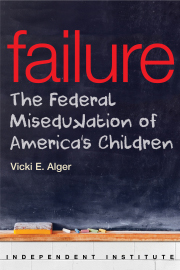
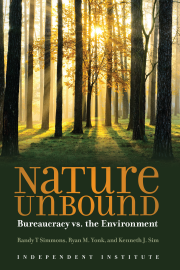
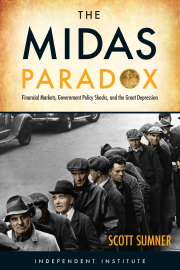


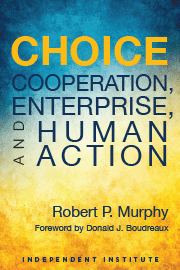
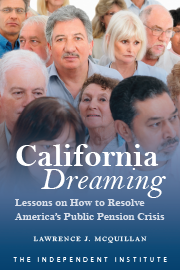


 “Teachers are standing up for their students and themselves against largely red states with weak labor laws,” writes
“Teachers are standing up for their students and themselves against largely red states with weak labor laws,” writes  Today the U.S. Supreme Court decided
Today the U.S. Supreme Court decided  In an
In an  The surging national economy has given
The surging national economy has given  Controversy has ensnared the public discussion over
Controversy has ensnared the public discussion over  This month, I am celebrating—if that’s the right word—an especially important milestone in my life. In May 1968, exactly fifty years ago, I was putting the finishing touches on my work for the Ph.D. degree in economics at the Johns Hopkins University. Among other things, my dissertation had to be typed in the exact form prescribed for a copy to be deposited in the Hopkins library.
This month, I am celebrating—if that’s the right word—an especially important milestone in my life. In May 1968, exactly fifty years ago, I was putting the finishing touches on my work for the Ph.D. degree in economics at the Johns Hopkins University. Among other things, my dissertation had to be typed in the exact form prescribed for a copy to be deposited in the Hopkins library. Let us define the set of all human beings whose height is greater than 170 cm and less than 180 cm. Call this set A. Now let us collect data on all the dealings between members of set A and members of set B, which consists of all human beings whose height is less than or greater than those in set A. What economic significance can we ascribe to the aggregate of monetary flows between members of set A and members of set B? Correct answer: none. This aggregation of persons who trade with persons in the complementary set has no economic meaning; the sets are arbitrary so far as economic understanding is concerned. People—individuals, firms and other organizations, and governments—trade in order to improve their economic condition. Whether they trade with shorter or taller people or with people within a certain height range or outside this range has nothing to do with economics or human well-being. To draw up a balance of inter-set payments for set A and set B, or any given subset of B would serve no purpose. It would be a nonsensical exercise.
Let us define the set of all human beings whose height is greater than 170 cm and less than 180 cm. Call this set A. Now let us collect data on all the dealings between members of set A and members of set B, which consists of all human beings whose height is less than or greater than those in set A. What economic significance can we ascribe to the aggregate of monetary flows between members of set A and members of set B? Correct answer: none. This aggregation of persons who trade with persons in the complementary set has no economic meaning; the sets are arbitrary so far as economic understanding is concerned. People—individuals, firms and other organizations, and governments—trade in order to improve their economic condition. Whether they trade with shorter or taller people or with people within a certain height range or outside this range has nothing to do with economics or human well-being. To draw up a balance of inter-set payments for set A and set B, or any given subset of B would serve no purpose. It would be a nonsensical exercise.